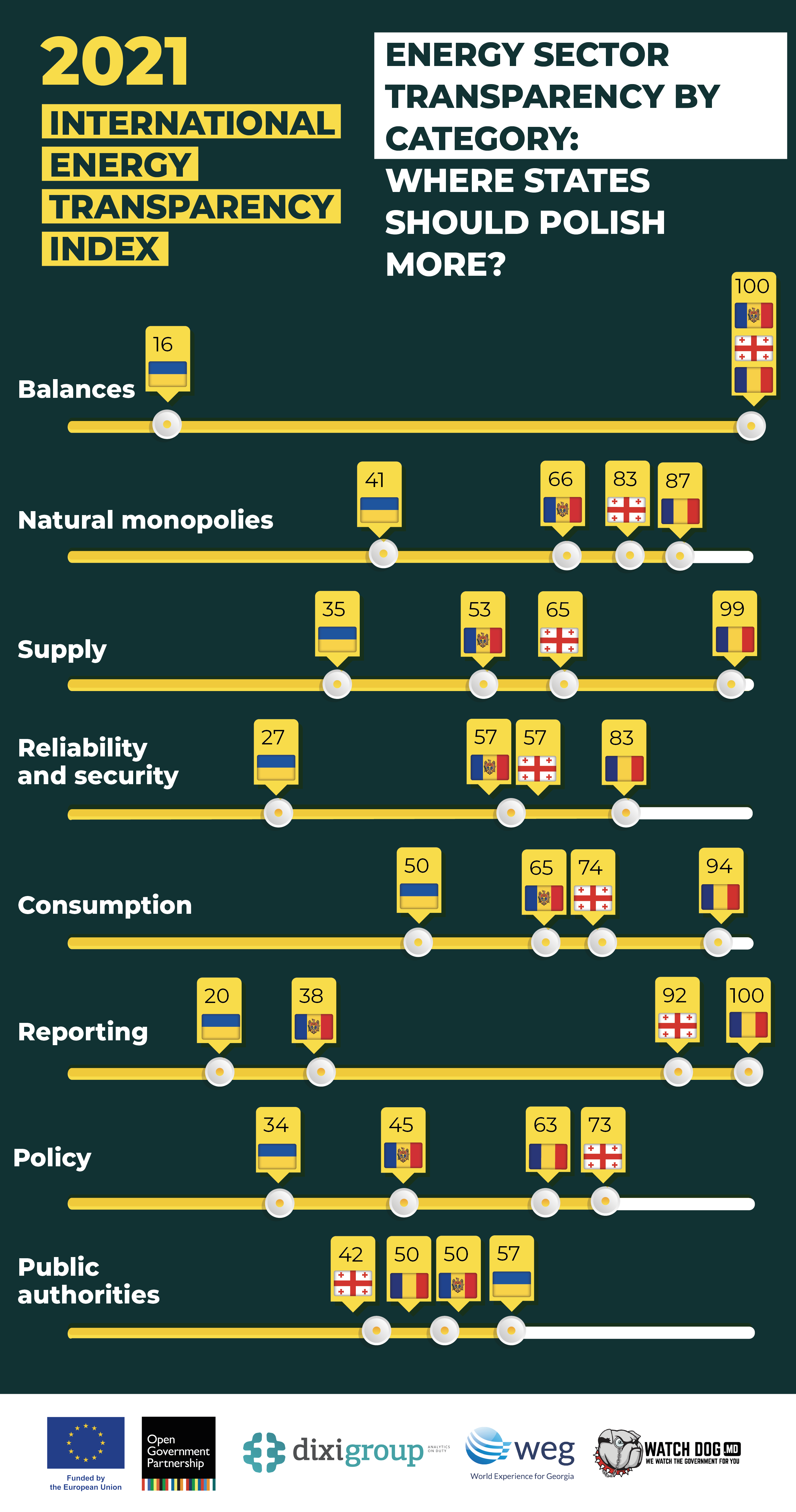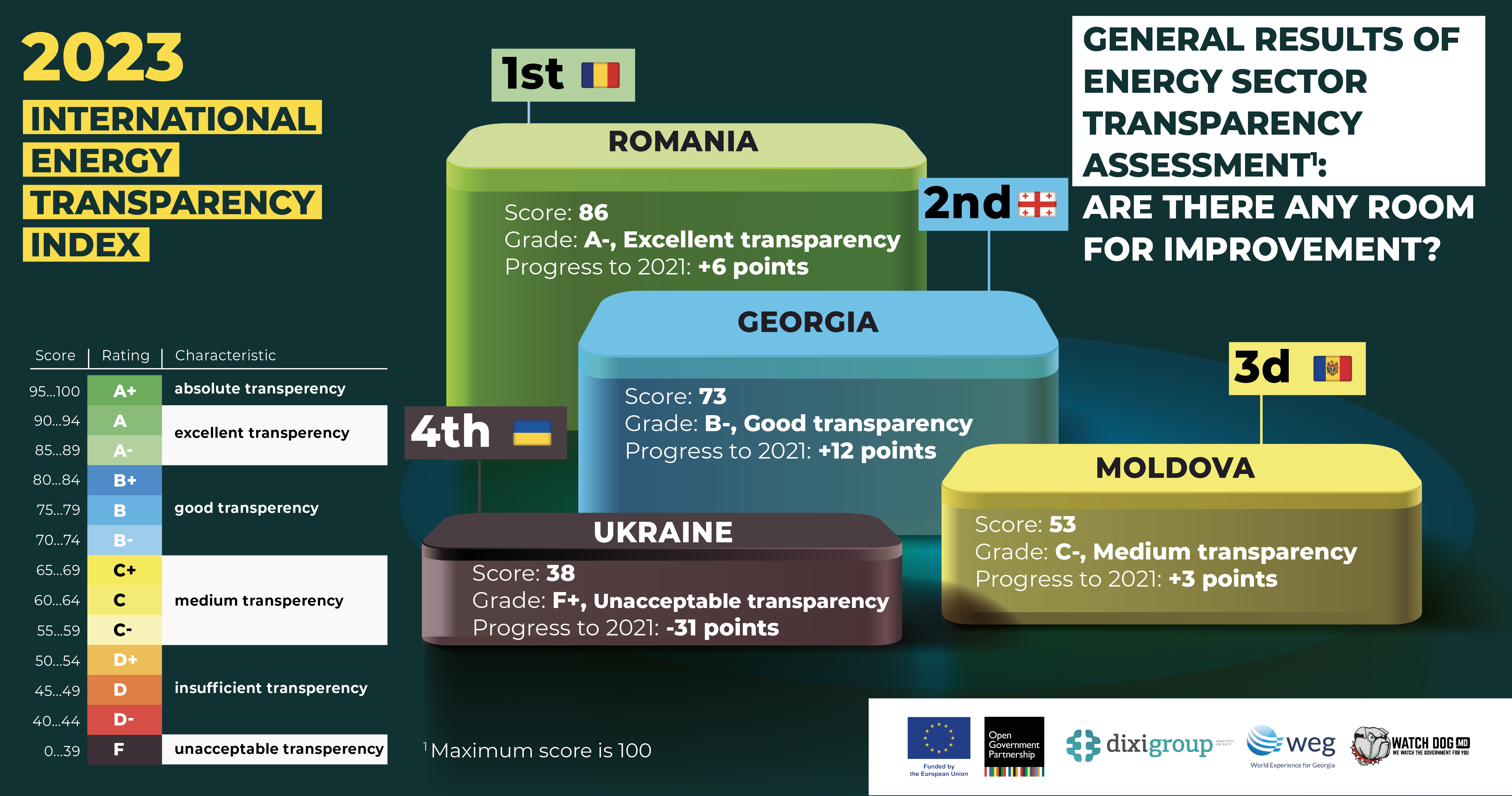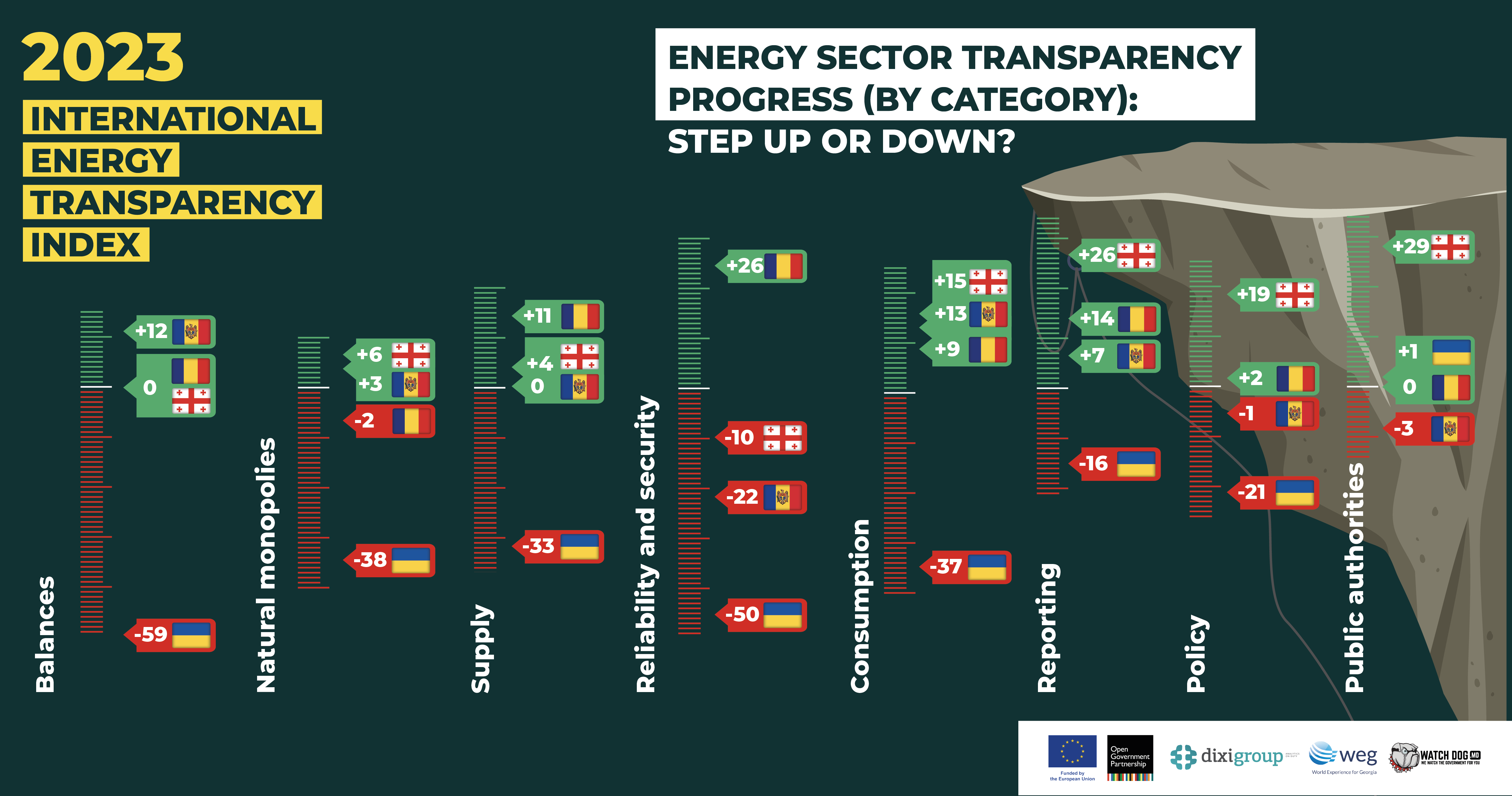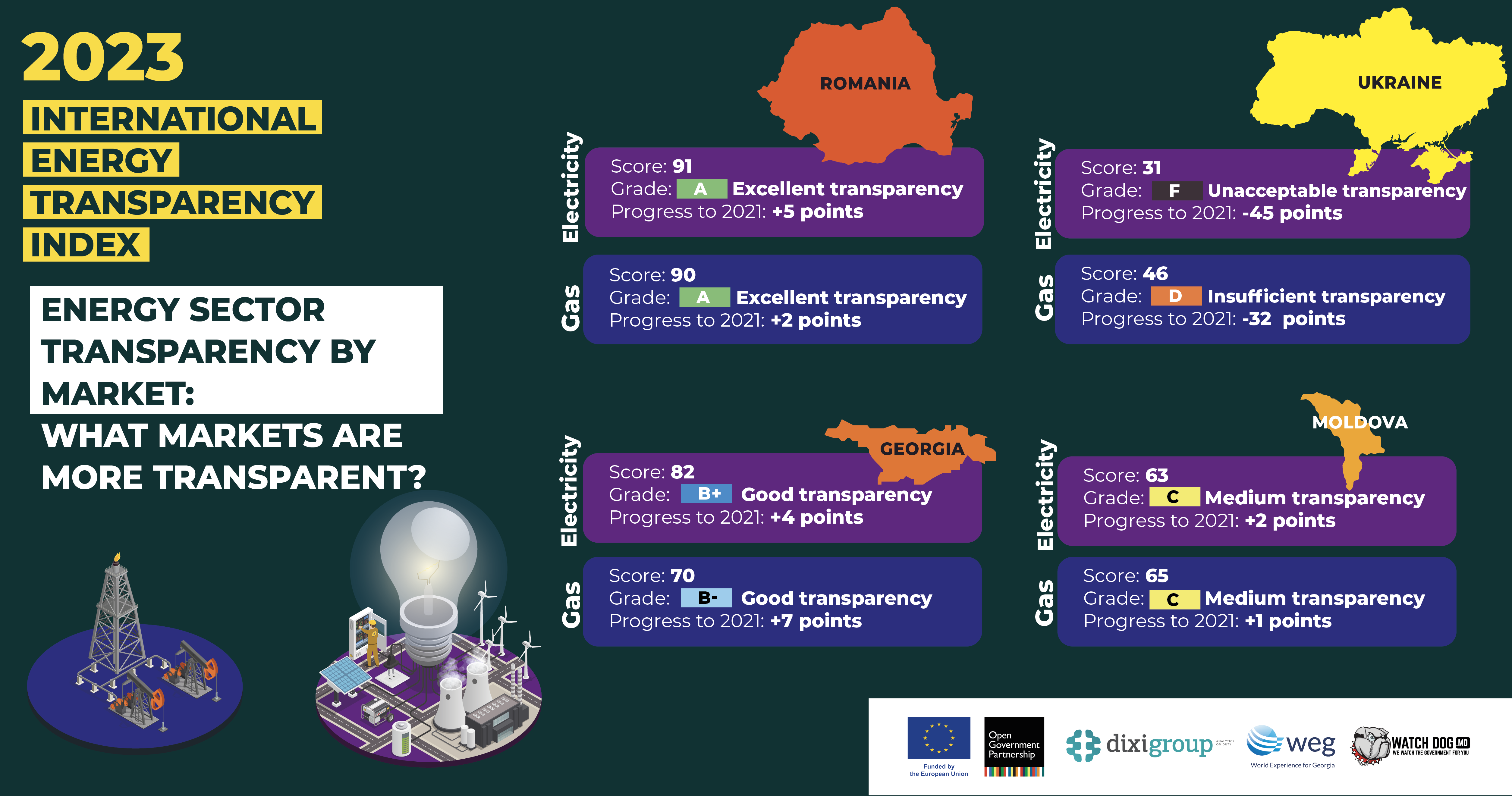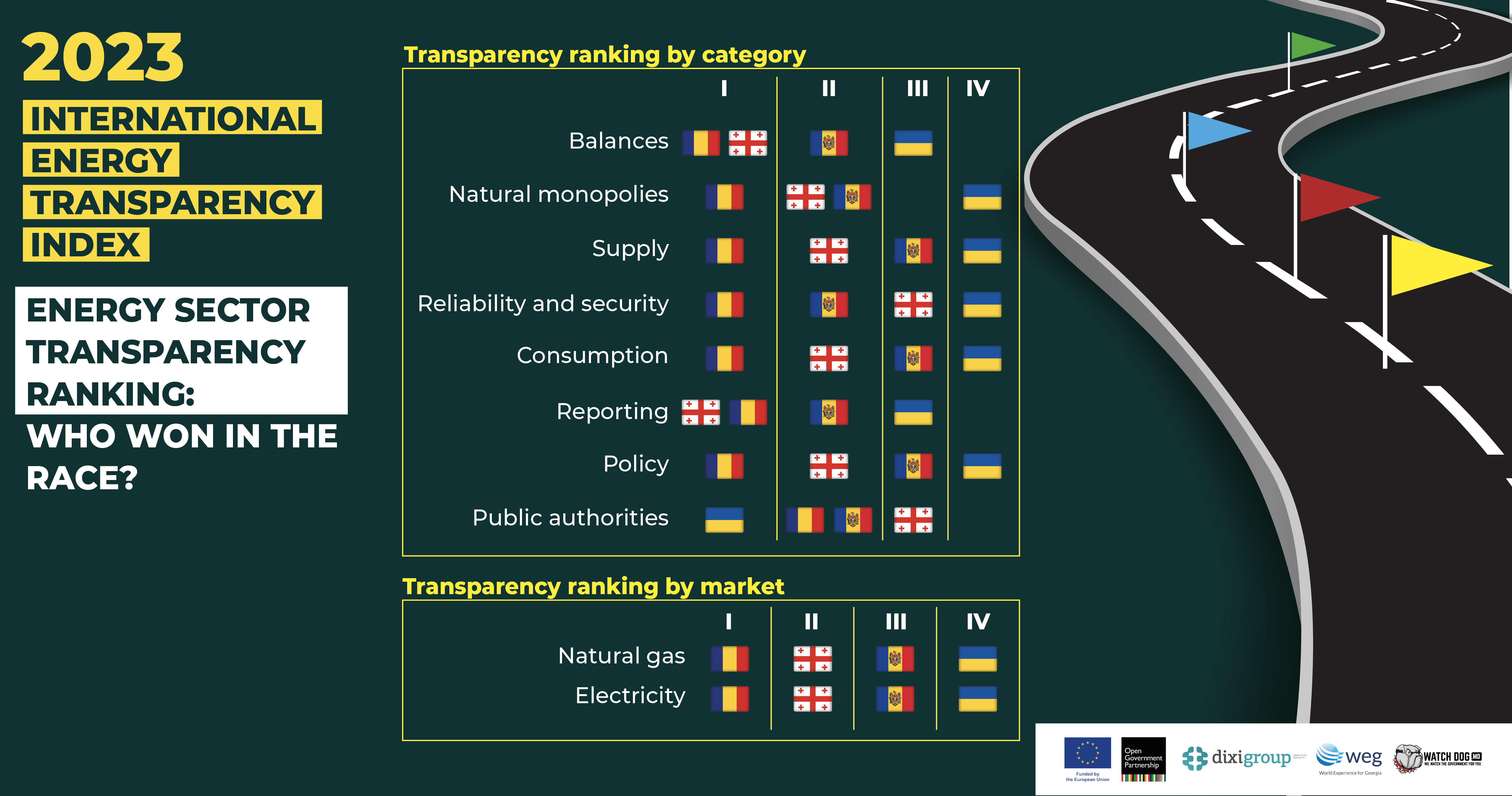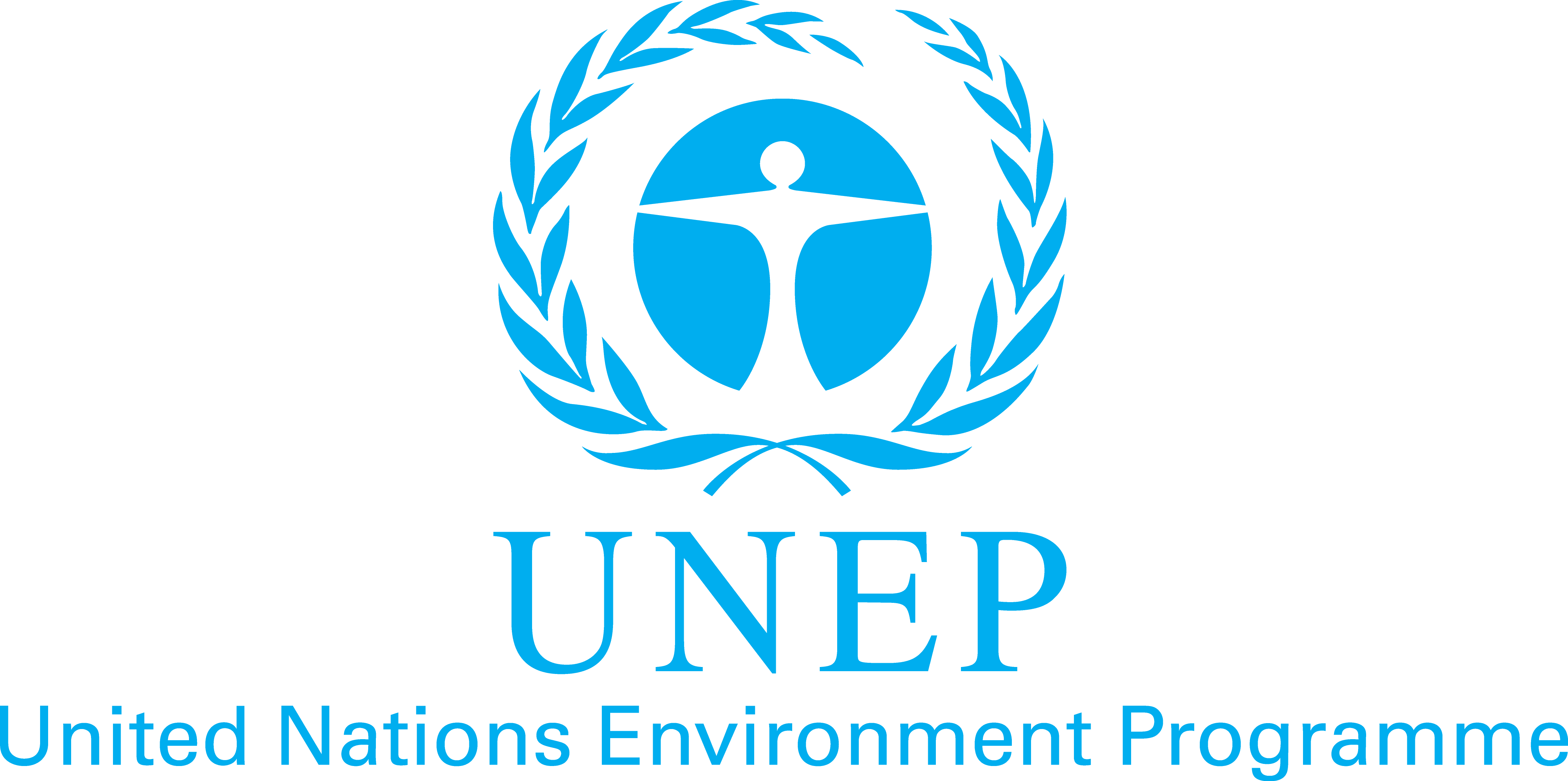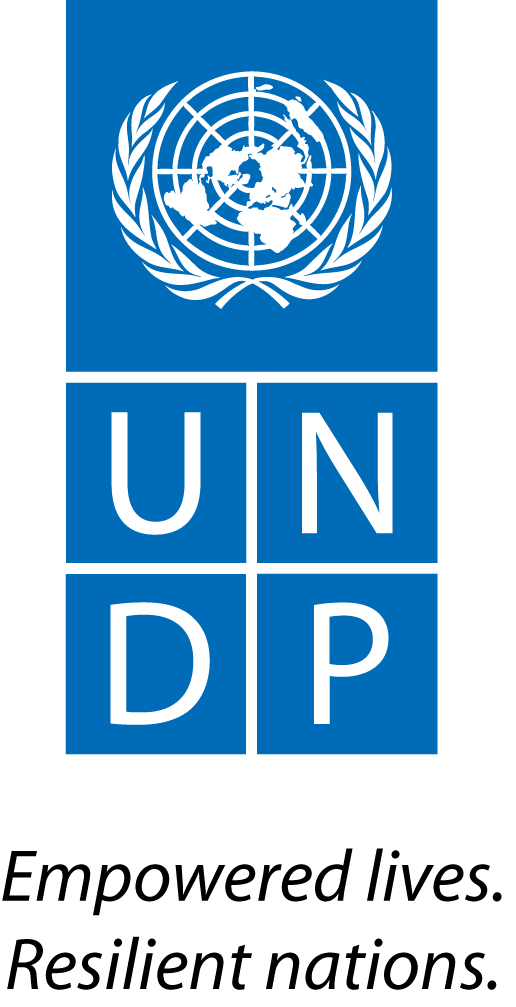Energy Sector Transparency Index 2023 - Georgia, Moldova, Ukraine, Romania
The Ukrainian analytical center DiXi Group, in collaboration with WEG and partner organizations from Moldova and Romania, has published the results of the 2023 Energy Transparency Index.
The index evaluates the transparency of the energy sectors in Georgia, Moldova, Ukraine, and Romania. According to the 2023 data, Romania, an EU member, ranks first with a rating of 86 (A-), followed by Georgia with 71 (B-), indicating good transparency. Moldova scores 57 (C-), reflecting a medium level of transparency, while Ukraine is rated 38 (F), indicating an unacceptable transparency.
It is noteworthy that Ukraine's results have significantly worsened compared to the previous year's index due to the ongoing war and the subsequent closure of information for security reasons. In contrast, the other countries saw slight improvements in transparency. Georgia, in particular, increased its transparency score by 12 points compared to the previous year.
The index evaluates transparency in the context of the transfer and implementation of directives and regulations during the process of European integration. It includes the following areas: energy balances, transparency of natural monopoly activities, energy supply and consumption issues, transparency in reporting, the policy development process, and the activities of public authorities.
The publication of energy statistics in Georgia has achieved the highest transparency rate. Despite this progress, several issues remain problematic in 2023. The opening of energy markets continues to face challenges, with the launch of the electricity exchange being postponed multiple times and the gas market still in its early stages. The population lacks the opportunity to choose their electricity supplier, energy company reports are often unavailable, and determining natural gas prices for the commercial sector remains problematic.
In 2023, significant progress was made in developing policies related to energy efficiency. An inventory of central government-owned buildings has begun, and much of the secondary legislation needed to implement the Energy Efficiency Act has been drafted.
Issues of policy planning and budget transparency require improvement. Energy policy and strategic documents are not being monitored, and performance reports are not being produced. There is no register of projects receiving state aid, and no annual reports are published.
It is recommended that energy companies, policymakers, and regulatory agencies make greater efforts towards data openness and transparency, as this is essential for the success of energy sector reforms.
The report is available at the following link
The material was prepared within the framework of 'Strengthening transparency and accountability in the Eastern Partnership through the application of the Energy Transparency Index' supported by the European Union through Open Government Partnership Europe under EU for Integrity Programme. Its contents are the sole responsibility of World Experience for Georgia and do not necessarily reflect the views of the European Union.

